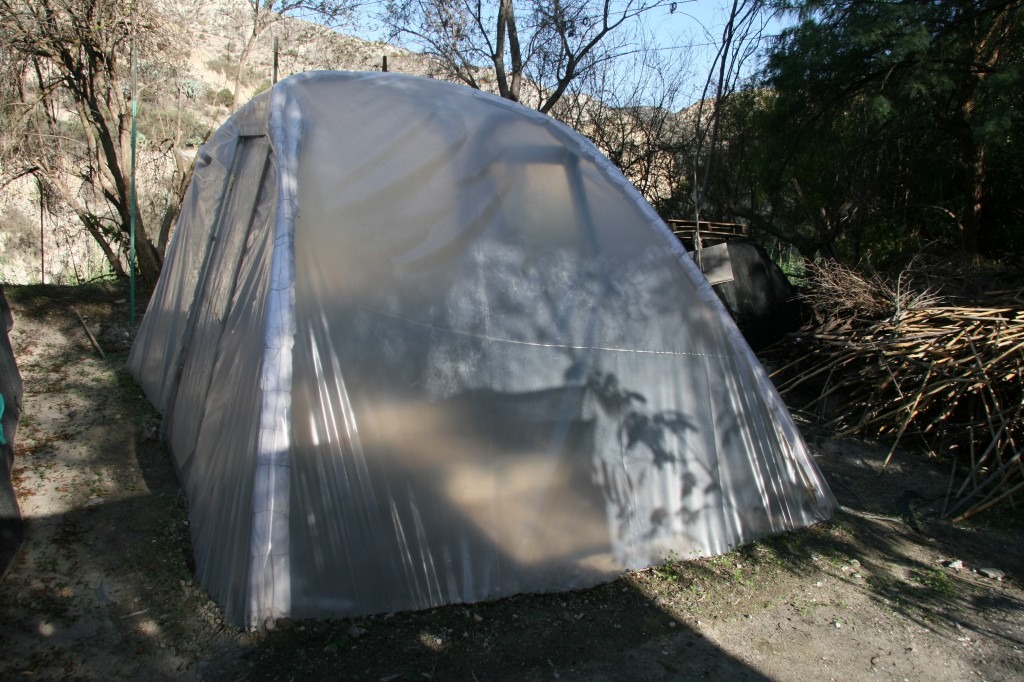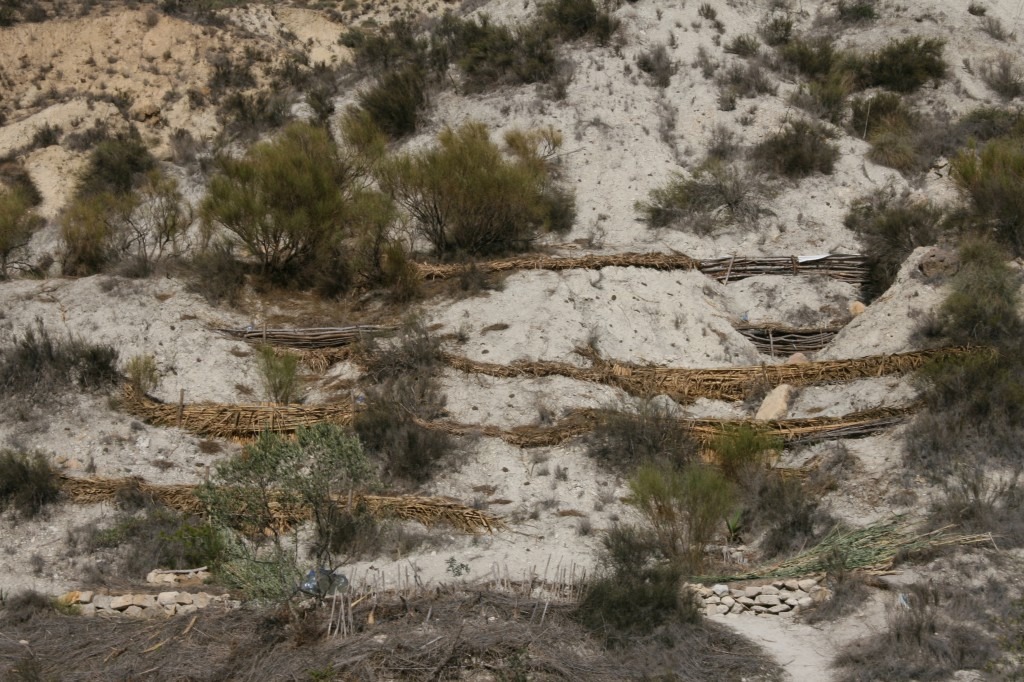Drylands Management, Sustainable Living
We have been harvesting some carobs in three trees placed in Los Molinos del Río Aguas. We collected the fruits by hand but when they were not easily accessible we used a long stick to knock down the fruits to catch them in a net placed on the ground. Sometimes we even climbed like monkeys through the branches. In total we collected 90 kg of carob!
Some carob will be cleaned and the seeds stored in the seed bank of the Drylands Management Department. They will be used later during interventions for reforestation in lands affected by erosion and soil degradation. Others of these carobs will be sold to a pig-farm as pig-food as an extra-income for Sunseed Desert Technology. And finally, they will also be used by the Sustainable Living Department for cooking purposes. Because it is rich in natural sugars and has a kind of “chocolate taste” is a good local alternative to sweet foods. In addition, it has a lot of health benefits because of the important amounts of proteins, fibers, minerals and vitamins. Carob is used for its medicinal properties too, mainly for digestive health (protecting intestinal mucosa), or because of its high amounts of tannins, a powerful antioxidant, which helps combat premature cell deterioration (preventing cancer formation).
Hemos estado recogiendo algarroba de tres árboles que se encuentran aquí en Los Molinos del Rio Aguas. Parte de la algarroba la recogimos una a una pero cuando no podíamos alcanzarla zarandeamos las ramas con un palo para que cayera sobre una malla que previamente había sido tendida en el suelo. A alguno de nosotros le invadió la vena animal y como monos recogían el fruto! En total conseguimos reunir 90kg de algarroba.
Parte de la cosecha se limpiará y las semillas serán guardadas en el banco de semillas del Departamento de Tierras Áridas. Se usarán en un futuro en las intervenciones del departamento para reforestar parcelas erosionadas y/o degradadas. Otra parte de la cosecha se venderá como comida de animales, siendo un ingreso extra para Sunseed. El resto será usado por el Departamento de Vida Sostenible con fines culinarios. La algarroba se puede usar como una alternativa local para endulzar las comidas ya que es rica en azúcares naturales y tiene un sabor similar al chocolate. Además, tiene muchos beneficios para la salud por su contenido importante en proteínas, fibra, minerales y vitaminas. Ésta es también usada por sus propiedades medicinales, principalmente para el sistema digestivo ya que protege la mucosa intestinal, o por su alto contenido en taninos, antioxidante que ayuda a combatir los primeros signos del envejecimiento y el deterioro de las células.













































